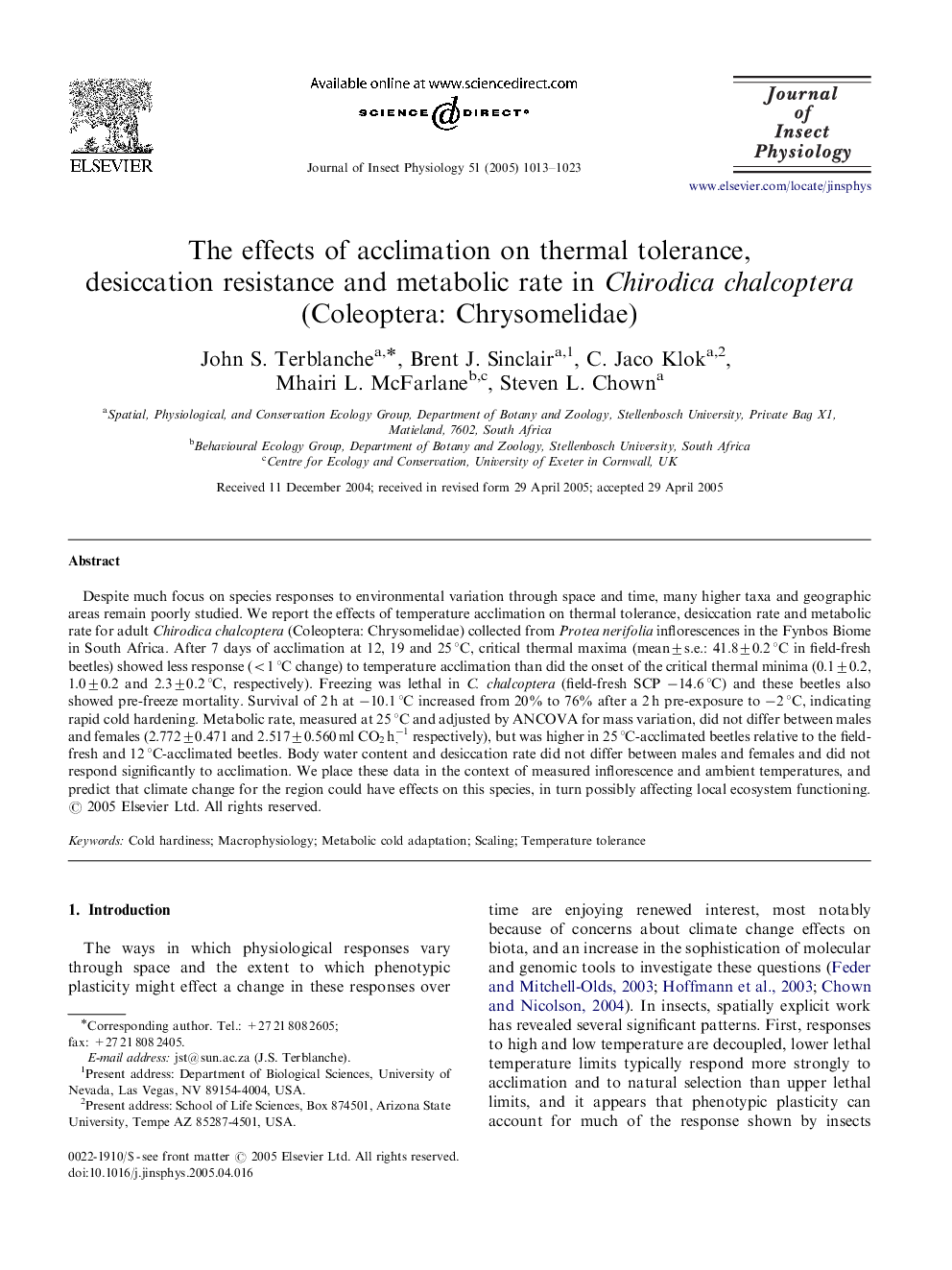| Article ID | Journal | Published Year | Pages | File Type |
|---|---|---|---|---|
| 9147278 | Journal of Insect Physiology | 2005 | 11 Pages |
Abstract
Despite much focus on species responses to environmental variation through space and time, many higher taxa and geographic areas remain poorly studied. We report the effects of temperature acclimation on thermal tolerance, desiccation rate and metabolic rate for adult Chirodica chalcoptera (Coleoptera: Chrysomelidae) collected from Protea nerifolia inflorescences in the Fynbos Biome in South Africa. After 7 days of acclimation at 12, 19 and 25 °C, critical thermal maxima (mean±s.e.: 41.8±0.2 °C in field-fresh beetles) showed less response (<1 °C change) to temperature acclimation than did the onset of the critical thermal minima (0.1±0.2, 1.0±0.2 and 2.3±0.2 °C, respectively). Freezing was lethal in C. chalcoptera (field-fresh SCP â14.6 °C) and these beetles also showed pre-freeze mortality. Survival of 2 h at â10.1 °C increased from 20% to 76% after a 2 h pre-exposure to â2 °C, indicating rapid cold hardening. Metabolic rate, measured at 25 °C and adjusted by ANCOVA for mass variation, did not differ between males and females (2.772±0.471 and 2.517±0.560 ml CO2 hâ1, respectively), but was higher in 25 °C-acclimated beetles relative to the field-fresh and 12 °C-acclimated beetles. Body water content and desiccation rate did not differ between males and females and did not respond significantly to acclimation. We place these data in the context of measured inflorescence and ambient temperatures, and predict that climate change for the region could have effects on this species, in turn possibly affecting local ecosystem functioning.
Related Topics
Life Sciences
Agricultural and Biological Sciences
Insect Science
Authors
John S. Terblanche, Brent J. Sinclair, C. Jaco Klok, Mhairi L. McFarlane, Steven L. Chown,
